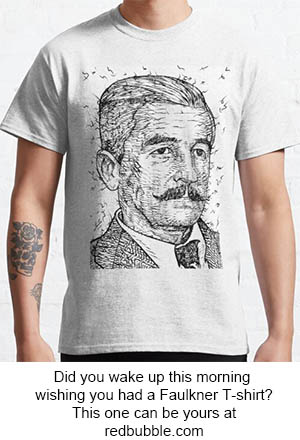“Consider for a moment the lives of Timothy’s heroes. Faulkner had come of age in the Jim Crow South, a time and place with its own idiosyncratic language and an abundance of majestic themes, including Family, Race, and the Land. Hemingway had been a journalist and driven an ambulance in the First World War before hunting lions on the African savannah. And what about Dostoevsky? He had been sent to Siberia for his views. Not metaphorically, you understand. He had been put on a train and shipped to the actual Siberia. The one with the steppes and the snow! At one point, he had even been called before a firing squad, only to receive a last-minute reprieve from the Tsar. How could one expect to craft a novel of grace and significance when one’s greatest inconveniences had included the mowing of lawns in spring, the raking of leaves in autumn, and the shoveling of snow in winter? Why, Timothy’s parents hadn’t even bothered to succumb to alcoholism or file for divorce.”
“Oh, what crueler irony could there be than for the gods to infuse a young man with dreams of literary fame ad then provide him with no experiences? But as I’ve noted, this was a secret that Timothy kept from everyone, including himself. So, every morning at 10:00, it was off to the library, where he postponed the writing of novels through the study of practices.”
